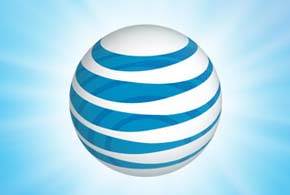The two companies are in deep merger discussions and a deal could either arrive in days or completely fall apart, according to reports.
AT&T and Time Warner are in the thick of talks about a possible merger. Meanwhile, Apple, which had expressed similar interest in Time Warner several months ago, is apparently monitoring the situation.
The game of possible acquisition musical chairs was reported on Oct. 21 by The Wall Street Journal, which attributed the advanced merger talks to several people who are familiar with the matter. A combination of AT&T and Time Warner “could happen as early as this weekend” and would join AT&T’s wireless, broadband and satellite TV offerings together with entertainment content from Time Warner, the story reported. Time Warner owns cable networks, including TNT, TBS, CNN and HBO, as well as the Warner Bros. film and TV studio.
“The talks toward what likely would be a cash-and-stock deal have come together quickly, are fluid and still could fall through, according to people familiar with the matter,” the article added. “An agreement also could be delayed,” the sources said.
In an interesting aside, although Apple had approached Time Warner a few months ago about a possible acquisition, those talks didn’t get very far, The Journal reported. “Apple is now monitoring the media giant’s advanced talks with AT&T,” according to sources.
Similar combinations and proposals of bringing together wireless carriers and entertainment or cable companies have been in vogue in recent years.
In July, Verizon announced a $4.83 billion deal to acquire search company Yahoo that is still in the process of being completed. Back in July 2015, AT&T acquired DirecTV for $48.5 billion after having pursued the merger since May 2014. In September, AT&T said that its previously announced DirecTV Now video streaming services will launch in the fourth quarter of 2016, bringing the carrier’s wireless customers more options for receiving television programming at will.
The merger rumors today between AT&T and Time Warner are intriguing, industry analysts told eWEEK.
“AT&T’s strategy with Time Warner is similar to the one that inspired Verizon’s pending AOL acquisition—to secure unique content and a base of longtime, satisfied customers,” Charles King, principal analyst with Pund-IT, told eWEEK. “The company certainly hopes they will be interested in purchasing other services, but that client base will also serve as attractant for online ads and similar services for commercial clients. You could interpret this as securing a dedicated audience, though there’s nothing keeping Time Warner customers from jumping ship.”
King said he is unsure how U.S. regulators would view such an acquisition. However, he said, “It could be a lever that AT&T competitors may try to employ to scotch the deal.”
Bill Menezes, an analyst with Gartner, said the possible merger makes sense because “content is king right now if you’ve got the kind of distribution muscle that AT&T does.” With Time Warner’s major content properties, a merger “seems like a natural vertical integration for a company with DirecTV, its cellular network and the Gigapower reach that it has into so many content consumers,” said Menezes. “Add to that the possibilities for an over-the-top video offering and the properties make sense.”
Federal regulators would likely establish “big conditions on any deal to ensure AT&T isn’t shutting out rival content from its distribution networks or hindering its access with uneconomic pricing,” Menezes added. “AT&T is seeing the cable guys seriously encroach on its turf with their burgeoning mobile offerings. Pulling out all stops to provide an equivalent product mix is a competitive necessity at this point.”
Another analyst, Rob Enderle of Enderle Group, said that these kinds of proposed mobile carrier and cable company deals today are “kind of the trend, and Verizon started it.”
For AT&T, obtaining Time Warner’s content and using it as a differentiator would “certainly be far better than [Verizon’s deal with] Yahoo in that regard,” said Enderle. “However given Verizon’s [latest third-quarter] numbers, it suggests their content acquisition strategy isn’t really generating any real advantage,” he said. “Recalling when AOL made and then had to reverse a similar acquisition, you have to wonder if the AT&T executives missed a meeting.”







